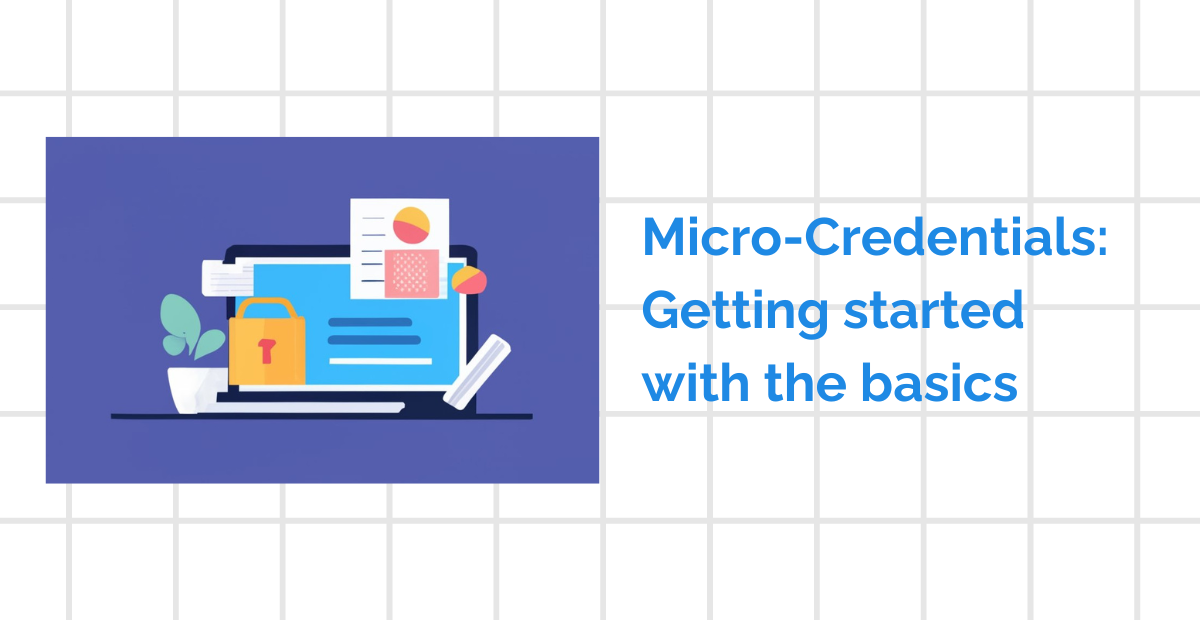The concept of “micro-credentials” is gaining popularity. These bite-sized certifications have emerged as a flexible and accessible alternative to traditional degrees and certifications, providing individuals with a versatile route to skill enhancement. In this blog, we will explore what micro-credentials are and why they are becoming a game-changer in education and the job market.
Understanding Micro-Credentials
Micro-credentials are short, competency-based certifications that validate an individual’s expertise in specific skills or knowledge areas. Unlike comprehensive degree programs, micro-credentials allow learners to focus on precise competencies, making them an ideal choice for busy professionals, career switchers, or anyone looking to quickly acquire new skills.
Why Choose Micro-Credentials?

-
Speedy Skill Acquisition: One of the standout advantages of micro-credentials is their rapid earning potential. Many can be completed in a matter of weeks or months, allowing learners to stay relevant in their fields without investing years in traditional education.
-
Cost-Effectiveness: Micro-credentials are more affordable compared to traditional degrees and certifications, making them accessible to a broader audience.
-
Personalization: Learners can tailor their micro-credential journey to their specific needs and interests, creating a personalized learning path.
-
Recognition: Employers increasingly value micro-credentials as they demonstrate competency in particular areas. These achievements are often showcased through digital badges or certificates, enhancing one’s employability.
-
Stackability: Micro-credentials can be stacked and combined to build larger credentials, such as certificates or degrees, providing a clear progression path.
Micro-Credentials in Education
Micro-credentials serve as acknowledgments of an individual’s mastery of specific skills or knowledge. They are especially beneficial for teachers and educators who seek to stay current in their fields. These certifications offer:
-
Flexibility: Educators can earn micro-credentials through online courses, workshops, or on-the-job experiences, fitting their professional development into their schedules.
-
Relevance: Micro-credentials address specific skills and knowledge, ensuring that educators acquire relevant and up-to-date expertise.
-
Credibility: Certifications awarded by recognized institutions signify competence in particular educational areas.
Micro-Credentials in the Workplace
For employees, micro-credentials are a powerful tool to showcase their skills and knowledge. Common micro-credentials in the corporate world include digital badges, certificates of completion, and specialized certifications in fields like data analysis, project management, and web development. Here’s how they benefit employees:
-
Skill Enhancement: Micro-credentials help employees stay updated with industry trends, broaden their skill sets, and exhibit their commitment to professional growth.
-
Career Advancement: These certifications can boost an employee’s chances of career progression by highlighting their expertise in critical areas.
The Role of Digital Credentials
Digital credentials play a pivotal role in micro-credentialing. They serve as tangible proof of the skills and knowledge acquired through micro-credential programs. Key functions of digital credentials include:
-
Verification: Digital certificates can be easily verified by employers and educational institutions, ensuring the authenticity of the credentials.
-
Portability: Individuals can store and access their digital credentials electronically, making them accessible from anywhere, at any time.
-
Standardization: These credentials often meet industry-recognized standards, ensuring that the skills and knowledge obtained through micro-credentials are universally acknowledged.
Micro-credentials are opening doors for continuous learning and career advancement. Their flexibility, affordability, and recognition in both education and the workplace make them a valuable asset in today’s dynamic world. Whether you’re an educator striving to stay current or an employee looking to upskill, micro-credentials offer a promising pathway to success.

 Author :
Author : 







